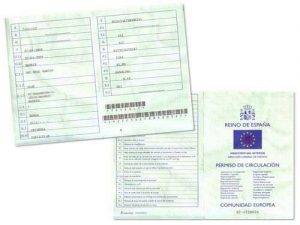How to Register a Foreign Vehicle in Spain: Step-by-Step Guide
How to Register a Foreign Vehicle in Spain: Step-by-Step Guide
Blog Article
Usual Obstacles Encountered Throughout Foreign Car Registrations and Exactly How to Get over Them
Navigating the complexities of foreign lorry enrollments can be a complicated job, fraught with challenges that vary substantially throughout territories. Concerns such as figuring out regional guidelines, getting rid of language obstacles in essential documentation, and fixing up inconsistencies in car specs commonly emerge. Comprehending tax ramifications and compliance with safety standards can further make complex the procedure. By checking out efficient methods to attend to these challenges, individuals can much better place themselves for a smoother registration experience. The question remains: what details actions can be taken to reduce these common challenges?

Comprehending Local Regulations
Navigating the complexities of international automobile registration starts with a detailed understanding of neighborhood policies. Each country has its details legislations and requirements controling the enrollment of cars, which can vary substantially from one jurisdiction to an additional (Register a foreign Vehicle in Spain). It is vital for foreign lorry proprietors to familiarize themselves with these guidelines to guarantee conformity and prevent potential penalties or legal issues

Moreover, some territories mandate automobile evaluations to determine conformity with regional safety and security and discharges standards. This could necessitate alterations to the car prior to it can be lawfully signed up. Engaging with neighborhood authorities or talking to lawful experts can give clarity on these laws.
Language Barriers in Documents
Language barriers present significant difficulties when it involves the paperwork needed for foreign automobile enrollment. Numerous people encounter problems in recognizing the specific demands laid out in local guidelines, as these records are typically released in the official language of the host country. Misinterpretations can cause the entry of inaccurate or insufficient paperwork, leading to hold-ups or rejection of registration.
Additionally, crucial documents, such as title actions, proof of possession, and insurance policy policies, may not have easily offered translations - Register a foreign Vehicle in Spain. This can develop complication for international vehicle owners who are not familiar with the regional terms and lawful lingo. Consequently, browsing the enrollment procedure comes to be difficult, frequently requiring additional effort and time to make sure conformity
To alleviate these problems, it is a good idea for international automobile proprietors to look for expert translation services or seek advice from regional professionals who can assist in comprehending the requisite documentation. Additionally, government agencies might give multilingual sources or standards to assist in the registration process. Proactively addressing language obstacles can simplify the enrollment experience, making sure that all needed files are accurately ready and sent according to local regulations.
Vehicle Requirements Disparities

Experiencing vehicle spec discrepancies can produce significant obstacles for international car proprietors during the registration procedure. These discrepancies commonly occur from distinctions in manufacturing requirements, dimension units, and regulative needs between the car's native land and the host country. For example, a vehicle that satisfies safety and security and emissions standards in one nation might not align with the specs needed for enrollment in another, resulting in hold-ups or straight-out denials.
To get rid of these obstacles, it is crucial for foreign car owners to carry out detailed study before initiating the registration process. This includes understanding the specific requirements set by the local authorities, such as safety standards, emissions levels, and any necessary modifications. Engaging with a professional solution concentrating on international lorry enrollment can likewise supply useful insights and support in navigating these discrepancies.
Documents plays a vital duty, so making sure that all technological specs and modifications are accurately mirrored in the documentation can alleviate problems. Additionally, keeping open interaction with regional registration authorities check can give quality on any type of possible disparities, permitting timely resolution and effective registration of the vehicle.
Browsing Tax Obligation Requirements
Recognizing the tax obligation requirements linked with international car enrollment is necessary for owners aiming to abide by local laws. you could try here Each jurisdiction has specific tax obligation obligations that have to be satisfied prior to an automobile can be legally signed up. These may consist of import duties, value-added tax obligations (VAT), and yearly vehicle tax obligations, which can vary substantially depending on the automobile's origin, worth, and specifications.
To navigate these tax obligation demands successfully, vehicle owners ought to begin by researching the he has a good point certain taxes relevant in their area. Consulting with regional tax obligation authorities or a tax obligation professional with experience in foreign automobile enrollments can supply clarity on the procedure and potential obligations.
In addition, it is essential to maintain complete documents of the vehicle's acquisition and any type of repayments made, as this will certainly be necessary for tax computations and potential audits. Proprietors need to also recognize any kind of target dates associated with tax repayments to stay clear of fines or hold-ups in registration.
Evaluation and Compliance Issues
Consistently addressing evaluation and compliance problems is crucial for proprietors of international automobiles looking for to register them in a brand-new territory. Each area has distinctive laws pertaining to lorry safety and security, emissions, and modifications, which can pose significant challenges for proprietors strange with neighborhood criteria. Understanding these requirements is critical to stay clear of hold-ups and extra costs.
One common concern emerges when international cars do not meet the host territory's safety and security and discharges standards. Proprietors need to proactively confirm that their cars comply with neighborhood guidelines, which may entail alterations or acquiring necessary documents from makers. Additionally, many territories require a thorough assessment by an authorized center, which can cause further difficulties if the automobile fails to fulfill specified standards.
To navigate these obstacles, owners can consult regional vehicle enrollment authorities or seek help from professionals knowledgeable about the registration procedure. Preparing all necessary paperwork ahead of time, consisting of previous inspection reports and evidence of compliance, can enhance the registration process. Inevitably, extensive prep work and awareness of assessment needs can considerably boost the possibility of an effective international car enrollment.
Conclusion
In summary, the procedure of international vehicle registration involves numerous challenges, including understanding of neighborhood regulations, language barriers in paperwork, disparities in vehicle specifications, navigation of tax demands, and examination and compliance issues. Dealing with these difficulties demands attentive research, usage of expert translation services, and examination with neighborhood authorities. Involving specialized solutions can make certain adherence to safety and emissions standards, ultimately helping with a smoother registration process and compliance with all relevant obligations.
Report this page